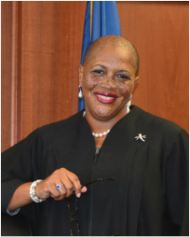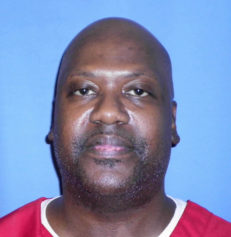
Oakland police used more informal phrases like “my man” when dealing with Black drivers, according to the study. (Photo by Justin Sullivan/Getty Images)
After poring over 183 hours of body camera footage taken during 981 routine traffic stops by Oakland Police Department officers, Stanford researchers have proven what hundreds of thousands of Americans already knew to be true: Police tend to treat white citizens with more respect than they do Black citizens.
The study, published in the Proceedings of the National Academy of Sciences on Monday, June 5, shifted focus away from the usual issue of police use of force and instead aimed attention at the amount of respect given by police when speaking with white vs. nonwhite drivers. Researchers found that officers’ language was less respectful when dealing with African-American residents compared to white ones, regardless of the officer’s race, the location of the traffic stop or the crime rate of the area.
It’s unclear if this racial disparity in language occurs in other parts of the country, too, but lead study author Rob Voigt said it’s definitely worth looking into.
“At the very least, this provides evidence for something that communities of color have reported, that this is a real phenomenon,” Voigt, a graduate student from the linguistics department at Stanford University, told CNN.
Voight and his colleagues took advantage of the widespread use of police body cameras for the study, examining 183 hours worth of footage from the Oakland PD to asses the officers’ language. The recordings, made in April 2014, were later transcribed, leading researchers to focus their attention on traffic stops involving 682 Black drivers and 299 white drivers.
Next, they identified 36,738 distinct remarks, or “utterances,” made by 245 police officers; 312 utterances spoken to Black residents and 102 spoken to white residents were randomly selected for review by a group of 70 volunteers.
The volunteers were instructed to read the transcript of one motorist’s utterance and then the utterance the police officer made in response. Using a four-point scale, volunteers then rated how respectful, polite, friendly, formal and impartial the officer was. Each interaction was rated at least 10 times, and volunteers were unaware whether the motorist was Black or white, male or female, etc.
Researchers then used computational linguistics to rate how respectful each exchange was based on types of language that convey respect or politeness. For example, the computer measured how often police used words like “please” and “thank you” and formal titles like “ma’am” or “sir.” Police also were assessed on the way they introduced themselves to the stopped motorist, if they apologized by saying “Sorry to stop you” and if they reassured safety by cautioning the motorist to “Drive safely, please” at the end of the encounter.
All such phrases are a sign of respect, according to the study, and many of them showed up in the transcripts. Some less-respectful utterances included informal titles like “my man” or using first names. The transcripts in the study also included disrespectful comments like, “All right, my man. Do me a favor. Just keep your hands on the steering wheel real quick” and “[First name], can I see that driver’s license again?”
Through stark variances in the use of formal and informal language, researchers noticed a pattern of officers being rated as less respectful, less polite, less friendly, less formal and less impartial when drivers were Black than when speaking with drivers who were white. Researchers reported that the racial disparity was clear within the first 5 percent of interactions between an officer and a driver, noting that it became possible to predict whether the driver was Black or white based on phrases the officer used.
“We have found that police officers’ interactions with Blacks tend to be more fraught … even when no arrest is made and no use of force occurs,” the researchers concluded. “The racial disparities in officer respect are clear and consistent, yet the causes of these disparities are less clear.”


